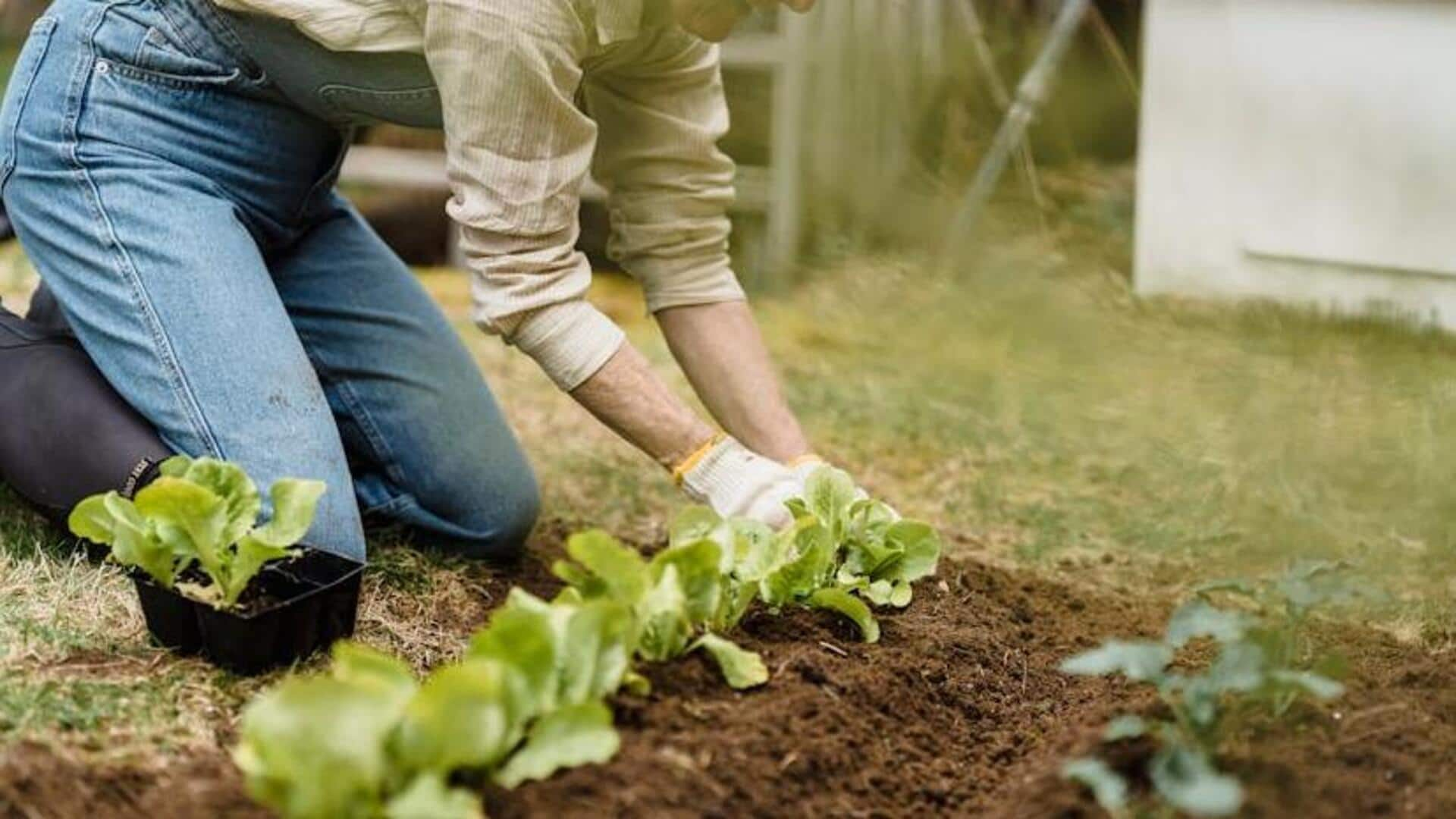
5 ways to improve health with vegetable gardening
What's the story
Vegetable gardening isn't just a hobby; it's a holistic way to boost your physical and mental health.
This article delves into five practical ways that tending to a vegetable garden can significantly enhance your overall well-being.
From the physical exercise of gardening to the nutritional advantages of fresh produce, each section reveals how this peaceful activity can serve as a foundation for a healthy lifestyle.
Physical benefits
Boost physical activity
Gardening is a great moderate-intensity workout. It includes a variety of activities like digging, planting, weeding, and watering.
Just spending 30 minutes a day in the garden can enhance cardiovascular health, increase flexibility, and strengthen muscles.
It is a fun way to meet the minimum 150 minutes of moderate aerobic activity per week recommended by health professionals.
Mental health
Enhance mental well-being
Gardening can significantly alleviate symptoms of depression and anxiety.
Interacting with nature reduces stress and fosters a sense of tranquility.
One study revealed that spending time in green spaces significantly reduces cortisol levels (a stress hormone), leading to improved mood and mental clarity.
It provides a platform for mindfulness and serves as a serene sanctuary amidst the bustle of everyday life.
Dietary impact
Improve nutrition
Growing your own vegetables guarantees that you're eating fresh, nutrient-dense food that hasn't been contaminated by harmful pesticides.
Veggies straight from your garden will be higher in vitamins and minerals compared to those that have journeyed hundreds or thousands of miles to reach your plate.
Eating home-grown vegetables contributes to a high-fiber, vitamin, and mineral-rich diet - all crucial for optimal health.
Sustainability
Encourage sustainable living
Vegetable gardening fosters eco-conscious lifestyle by decreasing dependence on store-bought produce and minimizing food miles i.e. the distance food travels from where it is grown or made until it reaches the consumer.
And, by composting kitchen scraps to use in the garden, you further eliminate waste and enrich the soil without resorting to chemical fertilizers.
This contributes to a healthier ecosystem by promoting biodiversity.
Economic benefits
Save money on groceries
Starting a vegetable garden can drastically cut grocery expenses in the long run.
After the initial investment in seeds or seedlings and any required tools or equipment, the cost of maintaining a garden is minimal compared to purchasing organic produce from the store.
For instance, growing everyday items like tomatoes, lettuce, or carrots at home can potentially save hundreds of dollars a year on grocery bills.